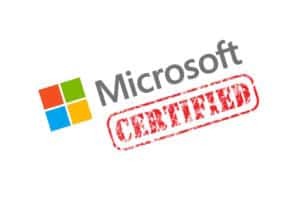Cracking the code to earn a PMP (Project Management Professional) certification might feel like trying to solve a Rubik’s Cube blindfolded—equal parts challenging and mystifying. You’ve scrolled through endless forums, read a library’s worth of guides, and it still feels like grasping at straws.
By the end of this post, you’ll have a clear, step-by-step roadmap to navigate the path to your PMP certification, minus the confusion.
Quick Takeaways:
- Navigate PMP prerequisites by securing 35 contact hours of project management education and accumulating project directing experience—4,500 hours with a four-year degree, 7,500 without.
- Dive deep into the PMBOK Guide, supplement with prep courses like the Project Management PrepCast, and solidify knowledge through practice exams to conquer the PMP exam.
- After passing, join PMI, engage in continued education to earn 60 PDUs every three years, and volunteer your skills to enrich both your experience and professional network.
What Does It Take to Be PMP Certified?
So, you’re eyeing that coveted PMP (Project Management Professional) certification? Great choice! It’s a badge of honor that screams your project management prowess to the world. But before you dive in, let’s chat about what it takes to qualify for the PMP exam.
First off, there’s the formal education bit. At bare minimum, you’ll need a secondary degree (think high school diploma, associate’s degree, or the global equivalent). If your wall already boasts a four-year degree, you’re ahead of the game.
Next up, project management experience. With a secondary degree in your back pocket, you’ll need to rack up 7,500 hours leading and directing projects. If you have a four-year degree, that number drops to 4,500 hours. Besides the hours, a 35-hour project management education is non-negotiable, regardless of your academic background.
Navigating these prerequisites isn’t just ticking boxes. It’s about making sure you’ve got the experience that will not only help you pass the exam but also enrich your insights as a project manager.
How Do You Apply for the PMP Exam?
Okay, so you’ve ticked off all the prerequisites. What’s next? Applying for the exam can seem like a marathon, but don’t panic. Here’s a step-by-step breakdown to keep things straightforward:
Create an Account on the PMI Website : First things first, head over to the Project Management Institute (PMI) website and create an account. It’s your gateway to the PMP world.
Fill Out the Application : You’ll need to document your professional experience in project management meticulously. Be prepared with dates, roles, a brief description of your projects, and how they align with PMI’s project management processes.
Document Your Education and Training : Remember those 35 contact hours of project management education we talked about? Here’s where they come into play. Whether it’s PMI’s own offerings or an outside course, make sure you’ve got proof.
Application Review : Once you submit your application, PMI takes the reins and reviews it. This typically takes about 5-10 days. If there are any gaps, PMI will reach out.
Exam Fee Payment and Scheduling : After your application gets the green light, you’ll pay the exam fee. Then, it’s time to schedule your exam through Pearson VUE, PMI’s testing service partner.
Audit Process (If Selected) : A heads-up, some applications are randomly selected for an audit. If chosen, don’t sweat it. You’ll just need to send over some additional documentation, like copies of your diploma and signatures from a supervisor validating your project management experience.
What’s the Best Way to Study for the PMP Exam?
With the application out of the way, it’s time to hit the books. But, what’s the best strategy to tackle the vast terrain of project management knowledge required for the PMP exam?
PMBOK Guide : The Project Management Body of Knowledge (PMBOK) Guide is your bible. Published by PMI, it outlines the standards and best practices for project management. It’s dense, but it’s the foundation of your study plan.
Prep Courses : A PMP exam prep course can be a game-changer. It not only structures your study but also offers insights and strategies to navigate the exam successfully. For example, the Project Management PrepCast offers a comprehensive suite of learning tools, including video lessons and practice exams that mimic the real deal.
Study Groups : Don’t underestimate the power of a study group. Sharing knowledge and tackling practice questions with peers can reinforce your learning and keep you motivated.
Practice Exams : This is your secret weapon. Practice exams help you get comfortable with the format and time constraints of the actual exam. Aim to consistently score above 75% on multiple practice exams before you consider yourself ready.
A Pro Tip : Dive into the Exam Content Outline on PMI’s website. It gives you a detailed breakdown of the exam’s domains and tasks. Understanding the weights of different domains can help you allocate your study time more effectively.
With these strategies in your arsenal, you’re well on your way to acing the PMP exam. Remember, it’s not just about memorizing processes but understanding how to apply project management principles in real-world scenarios. Happy studying!
How Do You Stay Motivated and On Track During Exam Prep?
Preparing for the PMP exam can often feel like you’re trying to climb a mountain with no summit in sight. It’s a marathon, not a sprint, and staying motivated can sometimes be challenging. Here are a few strategies to keep you chugging along, even when the going gets tough.
First things first, set up a study schedule. This might seem like a no-brainer, but you’d be surprised how many folks try to wing it. A structured plan is your best friend here. Break down your study material into manageable chunks and set realistic goals for each study session. Remember, it’s not about cramming; it’s about understanding.
Finding an accountability partner or study group can make a world of difference. It’s easy to slack off when you’re only answering to yourself, but having someone to check in with can keep you honest. Plus, explaining concepts to others is one of the best ways to reinforce your own understanding.
Stay engaged with the project management community. Participating in forums, attending webinars, and reading blogs (just like this one!) can provide you with valuable insights and keep the fire of inspiration burning. Seeing others share their success stories or troubleshooting project challenges can remind you why you started this journey in the first place.
Don’t forget to balance study with rest. All work and no play make Jack a burnt-out boy. Make sure to schedule downtime and engage in activities that recharge your batteries. Whether it’s a walk in the park, a movie night, or a yoga session, find what helps you relax and make it a non-negotiable part of your routine.
What Happens After You Pass the PMP Exam?
Congratulations! Passing the PMP exam is a significant milestone. But don’t hang up your hat just yet; the journey has only just begun. Here’s what to do next to ensure you get the most out of your new certification.
First up, claim your certificate. PMI will send you an email with instructions on how to do this. It’s a simple process, but it’s a necessary step to make your certification official.
If you’re not already a member of PMI, now’s the time to join. Membership comes with a host of benefits, including access to a vast library of resources, discounts on continued education, and networking opportunities with fellow project managers.
Speaking of continued education, maintaining your PMP certification requires earning 60 professional development units (PDUs) every three years. But don’t view this as just another box to tick. It’s an opportunity to delve deeper into areas of project management that interest you. Whether it’s Agile methodologies, risk management, or something else, the world’s your oyster.
Here’s a unique tip that most don’t consider: volunteer your expertise. Look for opportunities to apply your skills in a volunteer capacity, either within PMI chapters or in community projects. Not only is this a fantastic way to earn PDUs, but it also gives you real-world experience that can enhance your resume and expand your professional network.
Remember, passing the PMP exam isn’t the end of the road; it’s the start of a thrilling journey in the world of project management. Embrace the opportunities for continued growth and development, and you’ll find that the best is yet to come.







